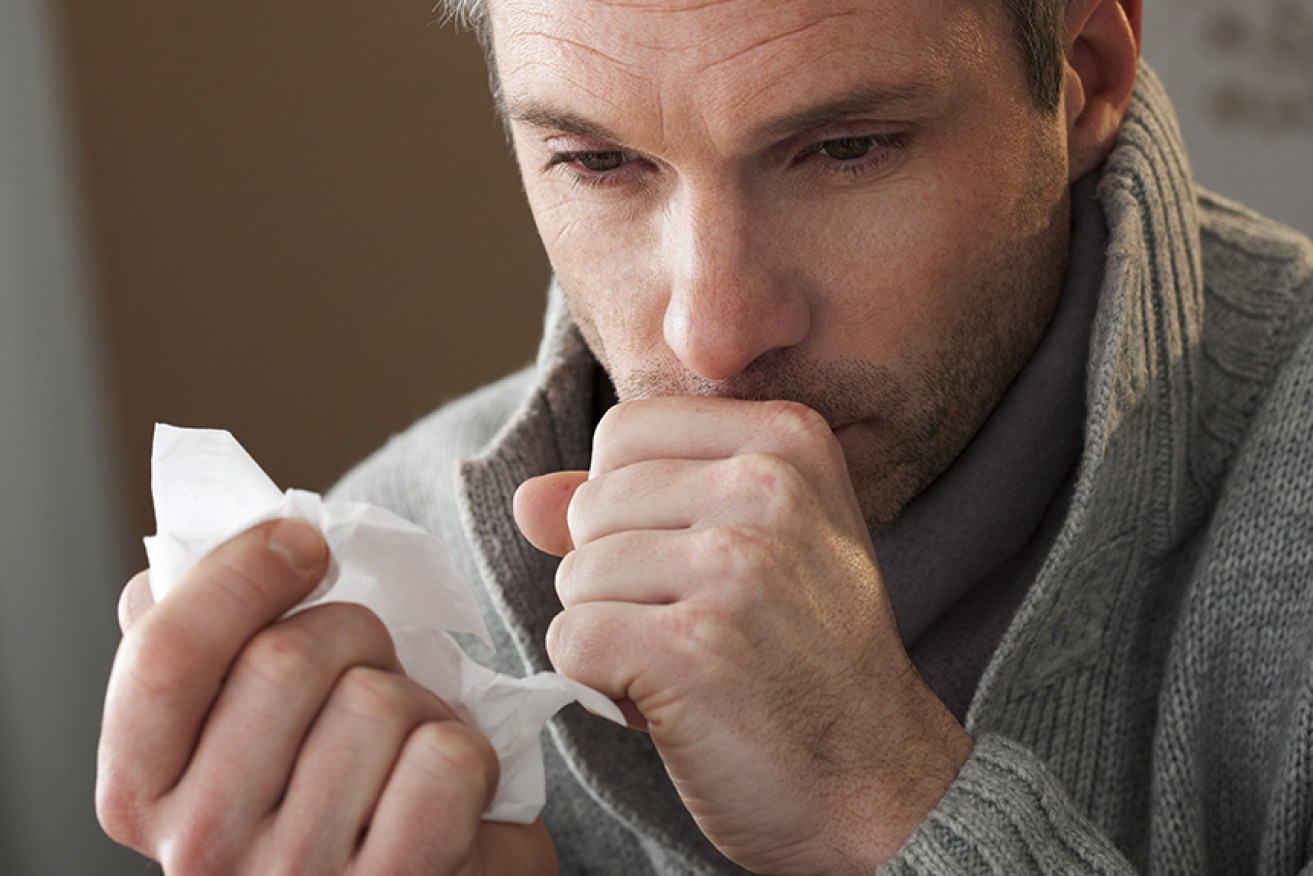20 ways to avoid getting a winter cold


Shutterstock
Nobody likes getting sick, and winter is the time that many of us will be afflicted with a cold or flu. While some illnesses are unavoidable, there are things we can all do to lower the chances of catching a bug.
Here are 20 tips for surviving winter without catching the dreaded lurgy.
1. Protein power

Research shows that a lack of protein can lead to a depleted immune system. Eat protein-rich foods throughout the day such as fish, eggs and yoghurt to nourish your immune system and assist in recovery from colds and flu.
2. Nasal spray

Over-the-counter nasal sprays flush out viruses, reducing the risk of developing a cold, and provide instant relief. Make your own by mixing a teaspoon with three parts salt and one part baking soda to a cup of distilled water.
3. Cut back on sugar

Sugar depresses your immune system for up to several hours. A US university study found infection-fighting white blood cells lost their ability to fend off bacteria and viruses in people after they consumed six tablespoons of sugar.
4. Daily probiotic

Up to 80 per cent of our immune system is located in our digestive system. A daily probiotic will reduce risk of respiratory and gastrointestinal infections. Look for supplements or fermented foods like yoghurt and sourdough bread which contain the gut-friendly bacteria lactobacillus.
4. Clean your phone

Mobile phones harbour all sorts of germs, so regularly cleaning the screen with a sanitising wipe reduces nasties near your face and mouth, minimising the risk of catching anything.
6. Raw garlic

Garlic is not only great for clearing chest congestion, it also has powerful antibacterial, antiviral, and immune-boosting properties. The only catch is that you need to eat it as close to raw as possible, so add it to food towards the end of cooking.
7. Keep your distance

Viruses can be spread as far as six to 10 feet away when infected people sneeze, cough or even talk. If a co-worker is sick or someone on the bus is coughing, stay at least 10 feet away. And if you’re the sick one, stay home for the sake of those around you.
8. Vitamin D

When Vitamin D is absorbed into the bloodstream and the liver, it is converted into the hormone calcitriol which helps to regulate the immune system. Try to get some sun for 15-20 minutes each day in winter to help keep colds at bay.
9. Sleep

Research shows that how much rest you get can make the difference between who gets sick and who doesn’t. People who regularly get less than seven hours of sleep a night triple their risk of developing a cold compared with those who sleep for eight hours.
10. Regularly wash your hands

This is a no brainer, but research shows people who wash their hands frequently have fewer cold and flu symptoms. Make sure you also thoroughly dry your hands afterward as germs find it easier to cling to wet hands.
11. Don’t touch your face

If you want to avoid catching a cold, keep your hands away from not only your mouth, but also your eyes and nose. These are all popular spots for germs entering the body. Be conscious of biting your nails or eating finger food throughout the day.
12. Drink water

Staying hydrated can help boost your immune response to viruses. Water helps the kidneys to function properly and flush out toxins. Coffee will dehydrate you so try to cut back if you drink a lot. Also remember that tea, juices and soft drink do not count toward your water intake.
13. Ditch the booze

Alcohol can impair your white blood cells’ ability to combat viruses for up to 24 hours after you indulge in a few too many drinks. Alcohol also disrupts restorative REM sleep, further impacting the immune system. Try to limit your intake to one drink per day in cold and flu season.
14. Exercise

After exercise the body’s number of infection fighting NK white blood cells are elevated for around 36 hours. These cells travel around the body looking for viruses and bacteria. Find a form of exercise that you enjoy and that isn’t dependent on good weather.
15. Keep warm

Keeping warm can actually help you avoid coughs, colds and flu. Shivering depresses the immune system and lower levels of sunlight affect immune system performance. We lose 30 per cent of our body heat through our heads so pop on a beanie or hat if it’s cold outside.
16. Get a massage

Massages boost your immunity by nourishing cells with more blood and oxygen and increasing circulation. Treating yourself to a massage once a month will also reduce stress, improving your immune system even more.
17. Clean your desk

Surfaces in your office will be some of the germiest you come into contact with during the day. Reduce germs by regularly cleaning your desk phone and keyboard with sanitising wipes, even if you don’t share them with other people.
18. Quit smoking

Smokers’ nose membranes are more likely to become inflamed, making the nose more susceptible to infection. This doesn’t just affect smokers but the people sitting around them. If you’ve thought about smoking, now is a good time to do it.
19. Omega 3

Omega-3 supplements contain fatty acids that increase the activity of bacteria-fighting cells, boosting the immune system. Just because supplements contain fish oil doesn’t mean they contain high doses of fatty acids, so look for brands with at least 1 g combined of EPA and DHA.
20. Laughter

Medical studies show that a deep belly laugh boosts the level of immune cells and infection-fighting antibodies, while also reducing blood sugar levels and stress. If your friends aren’t funny, hire a comedy and grab the doona for a fun night in.








